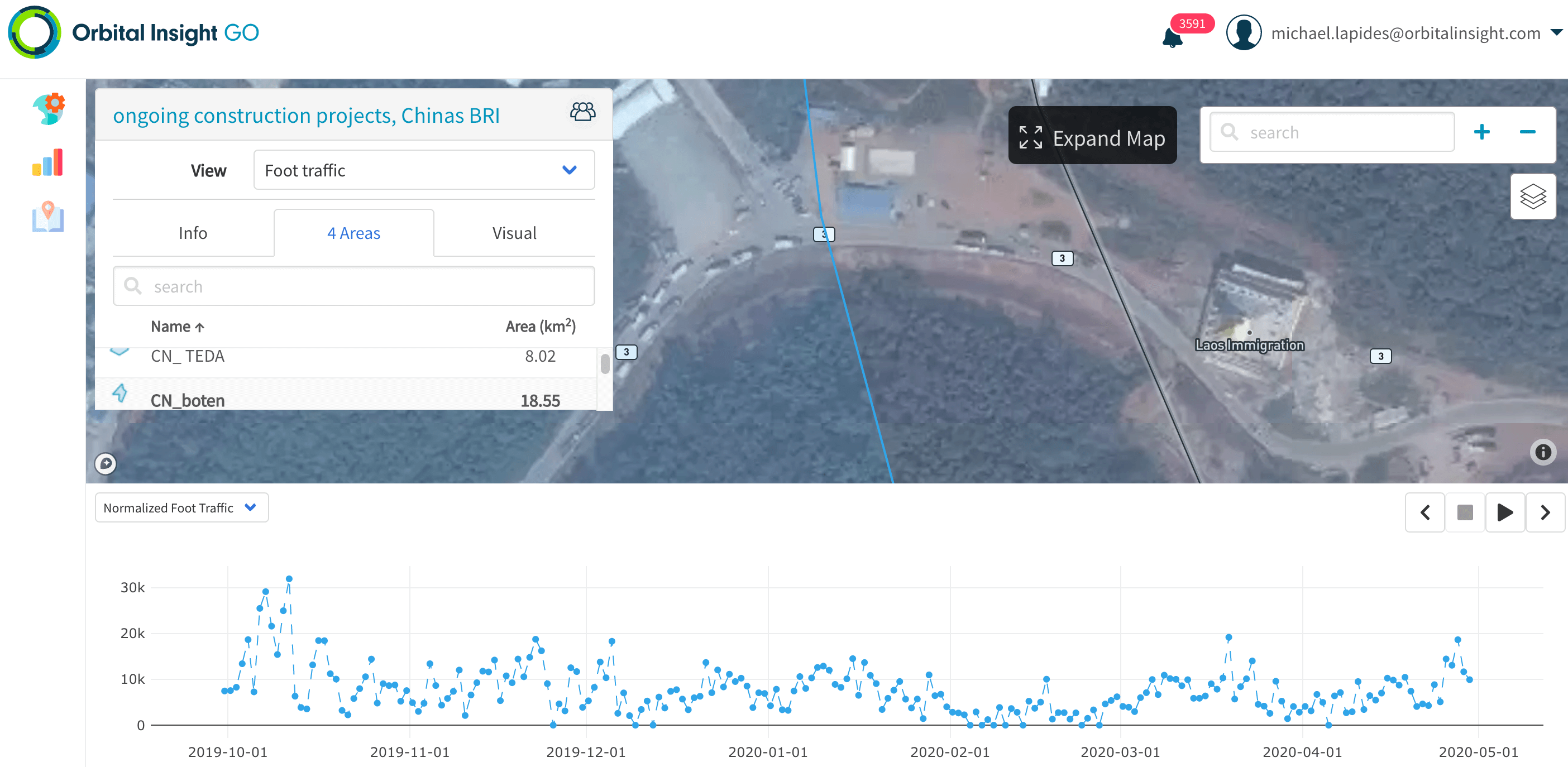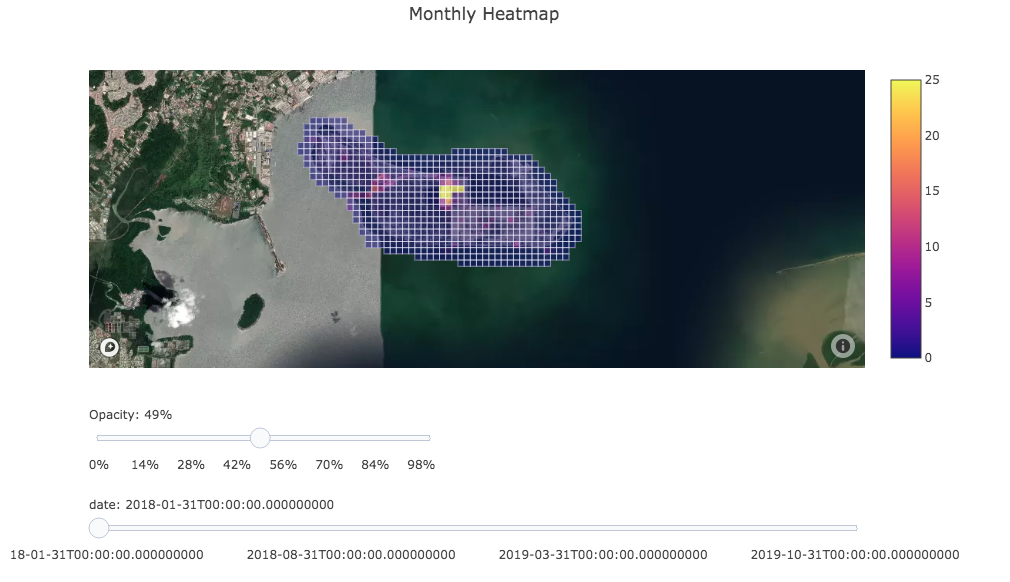- Orbital Insight Blog
- Signs of Life at China's Belt and Road in Laos
Blog
Signs of Life at China's Belt and Road in Laos
China’s Expanded Influence
China’s Belt and Road Initiative (BRI) is a multi-trillion-dollar mega-construction project aimed to physically link Beijing to 100 countries globally and facilitate trade with Beijing. The initiative has lost support due to controversies ranging from poor project viability analyses to concerns of poorer countries facing unsustainable debts.
Enter COVID
The global pandemic caused by the novel Coronavirus adds further risk to Xi Jinping’s grand strategy of infrastructure development. Since the beginning of COVID-19 construction projects were halted as Chinese engineers returned from abroad. Now there are fears of resuming construction across dozens of countries as resuming too early will only add to the viral spread.
Boten-Vientiane Railway
Also called the “China-Laos” railway, the 414km railway is one of Beijing’s many BRI projects that need to be carefully considered and monitored to balance investor, national debt, and public health concerns.
The Boten Special Economic Zone (SEZ) is one of many projects that has attracted dam builders, railway engineers, and Chinese investors throughout Laos. The grand vision is to create a Trans-Asia Railway connecting Southern China with Laos, Myanmar, Thailand, Vietnam, Cambodia, Malaysia, and Singapore by rail.
The remote location of the northern link in Boten and the underground tunneling making construction monitoring particularly difficult, Orbital Insight’s remote sensing and AI capabilities can track critical BRI links such as international ports, infrastructure, supply chains, and commodity flows on a global scale.
Signs of Life
In the last week of April, Orbital Insight observed a 65% week-on-week surge in activity at Boten, indicating a resumption of construction activity in the Boten SEZ. While the activity levels are not as high as what Orbital Insight observed in October 2019, it represents a return to pre-COVID levels as engineers and construction workers return to Boten.

How We Did It
Our geospatial analytics product, Orbital Insight GO, tracks activity at any area of interest in the world to understand normal activity and alert our customers to relevant changes such as an uptick in weekend shifts at a factory or a slowdown at nationwide gas stations.
This analysis specifically used anonymized location data, aggregated from thousands of apps where users opt into location settings. Orbital Insight receives this data in an anonymized format from our partners and our product then cleans, normalizes, and analyzes the data in its product Orbital Insight GO, which quantifies activity with historical and ongoing activity within minutes.
Geolocation data is a challenging dataset to work with, as app usage and reporting is constantly evolving. Our data science team develops algorithms to clean this signal and isolate trends based on actual events on the ground and not an artifact of the data we receive from our partners. The company also takes privacy seriously and makes sure no Personally Identifiable Information (PII) is received or passed onto our clients.

The result is objective, transparent, and timely results into any self-selected area of interest.
How You Can Do It
Every year organizations spend over $14 Billion on supply chain management software yet have almost no insight into the operations of their competitors, customers, and suppliers. As COVID has disrupted global supply chains, it is critical to identify the vulnerabilities in your own supply chain as well as those of your suppliers and even your suppliers’ suppliers.
Now that you’ve seen how geospatial analytics can reveal activity levels in China’s Belt and Road Initiative, we’d love to understand your organization’s challenges whether its activity monitoring of remote locations or identifying the chokepoints of your own supply chain.
Contact us to get started.
About Orbital Insight
Orbital Insight is the geospatial analytics company that helps organizations understand what’s happening on and to the Earth. Customers including Unilever, Airbus, RBC Capital Markets, The World Bank and the U.S. Department of Defense use Orbital Insight’s self-service analytics platform that highlights supply chain vulnerabilities, opportunities, and considerations for national security. Headquartered in Palo Alto, Calif., Orbital Insight is backed by Sequoia, Google Ventures, Chevron, and Bunge.






